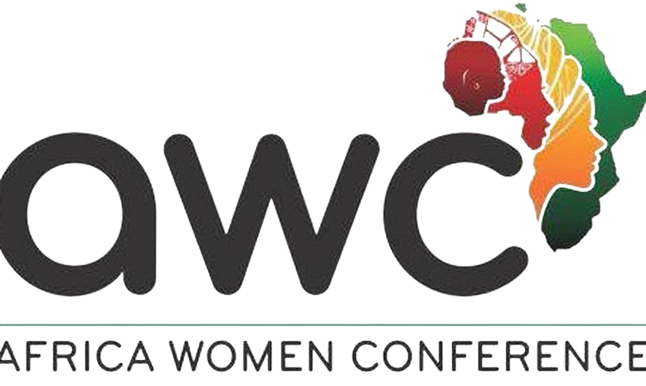Reimagining African Education in the AI Era: Addressing the Challenges and Creating an Effective Balancing System
Authored By: Ellen Musvaire
Introduction
The world has witnessed a significant shift towards digitalization in this 21st century, with various sectors embracing technology to improve efficiency and effectiveness. The education sector is no exception, and African countries have a unique opportunity to harness the potential of Artificial Intelligence (AI) to revolutionize their education systems, as highlighted by UNESCO (2021). However, this requires a reimagining of the current education landscape to address the challenges and opportunities presented by AI. Therefore, this paper explores how African education can be reimagined in the AI era, identifying key challenges, illustrating successful situational examples, and proposing balanced systems that can harness AI effectively and equitably.
Almost every aspect of life has now gone digital, from work and transactions to shopping, making it essential for the education system to align with these trends so that learners gain relevant knowledge for today’s world. The rise of Artificial Intelligence (AI) has brought about a paradigm shift across various sectors, and instead of resisting it, we must embrace and adapt to it. However, African countries face several challenges in integrating AI into their education systems. Some of the key challenges include:
– Infrastructure and Access: There is limited access to technology and the internet. Most schools, particularly in rural areas, lack the basic infrastructure needed to support AI-powered education.
– Digital Divide: Many schools, especially in rural or marginalized communities, lack basic connectivity, hardware, or reliable electricity. Without these, AI tools are inaccessible.
– Teacher Training: A major challenge is the lack of adequately trained educators who can integrate AI effectively. Without professional development, teachers may resist adoption or misuse AI tools, limiting their potential impact on learning.
– Equity and Inclusion: AI risks deepening existing educational inequalities if only well-funded urban or private schools can access it. Ensuring equitable access remains a challenge, as students from disadvantaged backgrounds may be excluded.
– Cultural and Linguistic Relevance: Many AI systems are designed in Western contexts, meaning they often fail to reflect local languages, cultural norms, and learning styles. This misalignment creates a barrier to effective adoption in African classrooms.
– Funding Constraints and Policy Gaps: Limited government budgets and competing priorities (e.g., textbooks, classrooms, teacher salaries) make it difficult to allocate resources toward AI. The absence of clear policies further hampers systematic adoption (African Union, 2020).
– Cost of Implementation: Beyond the initial procurement of devices and software, maintaining infrastructure, upgrading systems, and providing ongoing technical support is financially unsustainable for many schools.
Despite all these challenges, AI presents numerous opportunities for African education that we need to comprehend and be ready to equip. Some of the main benefits include:
– Tailored Learning: AI can facilitate personalized learning experiences that are adapted to the needs of each individual student, which can help to improve student outcomes, particularly in subjects such as mathematics and science.
– Upgraded Competence: Administrative tasks can be automated by AI, freeing teachers to focus on teaching and mentoring, resulting in a reduction of teacher workload and improvement of student-teacher ratios.
– Enhanced Accessibility: AI-powered tools can increase access to education for marginalized groups, such as those with disabilities or those living in remote areas.
– Data-Driven Insights: AI can provide valuable insights to inform education policy and practice, helping to identify areas of improvement and optimize education systems.
To harness the potential of AI in African education, it is essential to create an effective balancing system that addresses the challenges and opportunities presented by AI. This includes investing in infrastructure development to support AI integration, including access to technology, the internet, and electricity. It is also essential to provide continuous training and resources for educators to effectively integrate AI into their teaching practices and to incorporate AI-infused curricula that are relevant to the needs of African students (Luckin et al., 2016). Furthermore, fostering partnerships between governments, the private sector, and civil society can promote innovation and entrepreneurship in the AI space, while regularly assessing the impact of AI on education will help identify areas for improvement and optimize education systems. By working together, we can create a brighter future for African students and promote sustainable development in the region.
Conclusion
In summary, the integration of AI into African education presents both immense opportunities and pressing challenges. While the continent faces constraints in infrastructure, resources, and training, these barriers are not intractable. With strategic investment and a clear vision, AI can help bridge gaps in access, quality, and relevance in education. More importantly, reimagining education in the AI era means aligning technological tools with Africa’s unique social, cultural, and economic realities. Therefore, governments, private sector players, and civil society must work collectively to create inclusive systems that prioritize both innovation and equity. If this transformation is pursued with urgency and commitment, Africa has the potential to turn the AI revolution into an educational renaissance—one that empowers learners with the creativity, critical thinking, and skills necessary to thrive in a rapidly changing world.
References
African Union. (2020). Digital Education Strategy for Africa 2020–2030. https://au.int/en/digital-education
Luckin, R., Holmes, W., Griffiths, M., & Forcier, L. B. (2016). Intelligence unleashed: An argument for AI in education. Pearson.
UNESCO. (2021). Artificial Intelligence in Education: Challenges and Opportunities in Africa. https://unesco.org/ai-education-africa
